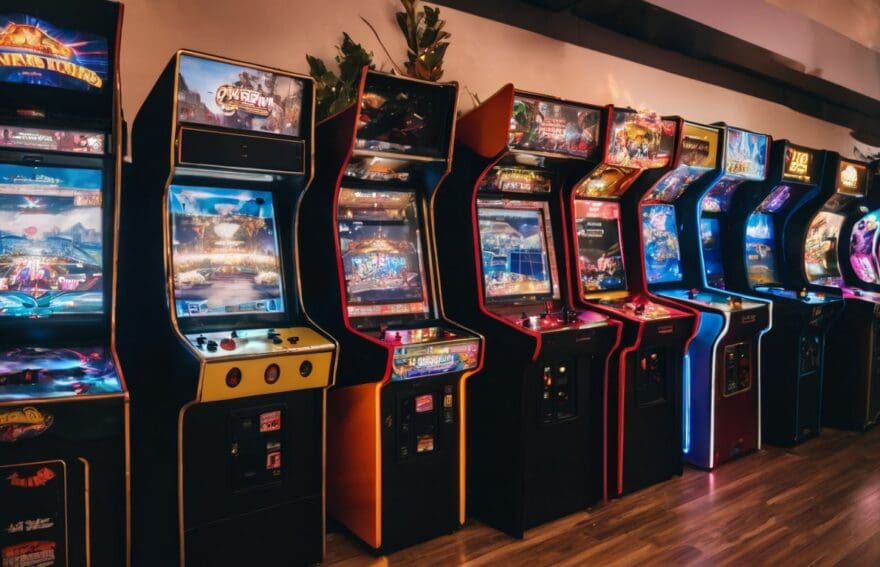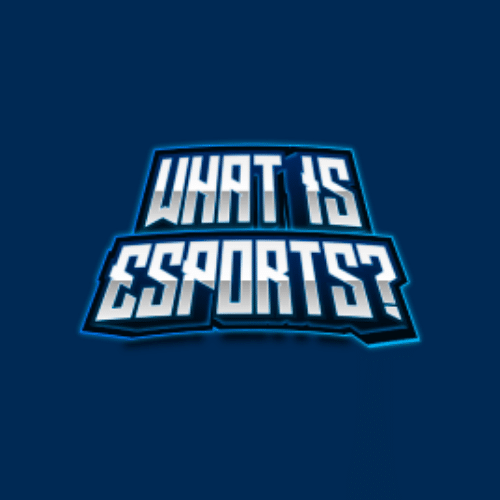The Evolution of Competitive Fighting Games and the FGC

Updated On: November 29, 2025 by 
Have you noticed that, despite a wee dip in popularity, the core fans of competitive fighting games remain as passionate as ever? It’s something we’ve picked up on and couldn’t help but delve into with gusto.
We’ve embarked on an enlightening journey into the heart of fighting game esports to understand what keeps this spirited community ticking over with such fervour. Along the way, we’ve encountered tales that epitomise resilience and sheer excitement—an endearing saga for both seasoned aficionados and those new to the scene.
Stick around for an engaging narrative brimming with camaraderie and thrills!
The History of Fighting Game Esports
The history of fighting game esports dates back to the early days of arcade games, with popular titles like Street Fighter and Mortal Kombat paving the way for competitive gaming. The 90s marked the start of the fighting game era, leading to the rise of esports in the early 2000s.
Early fighting games
We’ve witnessed the birth of a genre with early fighting games, carving out a space where quick reflexes and strategic mastery took center stage. They brought us iconic characters and thrilling combat right from the arcades to our living rooms.
Marvel vs. Capcom burst onto the scene in 1993, setting a new standard with its complex mechanics and an impressive roster that drew on various disciplines.
These pioneering games didn’t just captivate us; they created communities. Players gathered to challenge each other, share techniques, and celebrate every victory or learn from their defeats.
Together we marveled at over 700 different moves that were inspired by actual combat sports — it was more than just entertainment; it felt like stepping into an entirely new world of competitive gaming.
The 90s: The start of the fighting game era
The 90s marked the beginning of a new era for fighting games, with iconic titles like Street Fighter II and Mortal Kombat captivating players worldwide. These games introduced competitive one-on-one combat on a scale never seen before, paving the way for the birth of the fighting game community (FGC).
The release of these groundbreaking titles set off a surge in interest in gaming tournaments and brought about a sense of camaraderie among gamers as they competed head-to-head.
Moreover, the 90s saw an explosion in arcade culture, where players flocked to local arcades to face off against each other in intense battles. As the popularity of these games grew, so did their lore and following within the gaming community.
The early 2000s: The start of fighting game esports
In the early 2000s, fighting game esports began gaining traction as competitive gaming started to gain wider recognition. The release of iconic titles like Street Fighter III: Third Strike and Marvel vs.
Capcom 2 marked a significant turning point for the genre, drawing in a new wave of competitive players and helping to establish an organised tournament scene. With this surge in interest, dedicated players and organisers began laying the groundwork for what would eventually evolve into the vibrant and diverse esports community seen today.
As the competitive landscape continued to expand, tournaments such as EVO played a pivotal role in bringing together players from around the world. This era saw an increase in both local and international competitions, fuelling excitement within the FGC and fostering a sense of camaraderie among competitive fighting game players.
The Evolution of Fighting Game Esports
Fighting game esports has evolved significantly over the years with the rise of new fighting games, the expansion of the FGC, and the development of tournaments. It’s a constantly growing and changing scene that continues to capture the passion and dedication of gamers worldwide.
The rise of new fighting games
New fighting games have emerged, adding to the diversity of the competitive gaming scene. These titles bring fresh mechanics and characters, offering players new challenges and experiences.
With each release, the fighting game community eagerly embraces these additions, expanding its horizons and drawing in more enthusiasts.
EVO’s platform has provided an avenue for these new titles to shine, further propelling their rise within the competitive gaming sphere. The introduction of these games has invigorated the community’s passion for competition and fostered a dynamic environment that continues to evolve with each innovative addition.
Expansion of the FGC
The FGC has expanded significantly in recent years, attracting a growing number of passionate gamers and fostering a vibrant competitive gaming culture. With the rise of new fighting games and the continued development of tournaments, the FGC has seen an influx of players and fans.
EVO, as the world’s largest fighting game tournament, has played a crucial role in accommodating this expansion while maintaining its core values. The community continues to support and grow the competitive fighting game scene, creating an inclusive environment for both professional gamers and novices alike.
The growth of the FGC is evident in its increasing presence at major gaming events and its impact on the broader esports industry. As emerging trends and technology continue to shape the future of competitive gaming, the FGC remains at the forefront, driving innovation and pushing boundaries.
The development of tournaments
The evolution of the FGC has led to the development of numerous tournaments, shaping the competitive gaming landscape. It has brought about new opportunities and experiences for players and fans alike.
- Tournaments have become more diverse, featuring a wide range of fighting games such as Street Fighter, Tekken, and Super Smash Bros., catering to different player preferences and skill sets.
- With the rise of online platforms and streaming services, tournaments have expanded beyond physical venues, allowing participants from around the world to compete and showcase their skills on a global stage.
- The introduction of regional and international tournaments has fostered a sense of community among players, providing them with opportunities to connect with fellow enthusiasts and learn from diverse gaming cultures.
- Organisers have prioritised inclusivity by hosting events that accommodate players of all levels, encouraging novices to participate and learn from seasoned competitors in a supportive environment.
- As the popularity of esports continues to grow, tournament organisation has evolved to incorporate professional standards, ensuring fair play, ethical conduct, and equitable prize distribution for all participants.
- EVO’s influence on tournament development is evident through its commitment to promoting diversity in gaming by featuring a wide array of titles and supporting grassroots initiatives within the FGC community.
- In response to technological advancements, virtual reality (VR) tournaments are emerging as an exciting prospect for the future, offering a novel and immersive experience for both players and spectators alike.
- Collaborations between tournament organisers and game developers have resulted in innovative formats that introduce fresh challenges while contributing to the dynamic evolution of competitive gaming within the FGC.
- By embracing interactive spectator experiences through live broadcasts and digital engagement tools, tournaments have enhanced fan involvement, creating an electrifying atmosphere that transcends physical boundaries.
- The ongoing evolution of tournament development remains integral to sustaining the passion and enthusiasm within the FGC community while paving the way for new generations of gamers to immerse themselves in the thrill of competitive fighting games.
Making Fighting Game History: How EVO evolves with the FGC
EVO has become a crucial part of the FGC, shaping its growth and impact on competitive gaming. To learn more about this pivotal event and the future of the FGC, keep reading!
EVO’s growth and impact
EVO, the Evolution Championship Series, has experienced significant growth and made a substantial impact on the competitive gaming scene. As the world’s largest fighting game tournament, EVO has evolved over time to cater to the expanding community of passionate gamers within the FGC.
The impact of EVO goes beyond just hosting tournaments; it represents a unifying force that brings together players from diverse backgrounds and nurtures a sense of camaraderie among fans of the fighting game genre.
EVO’s continuous growth and influence showcase its pivotal role in shaping and promoting competitive gaming within the esports industry.
The evolution of EVO has not only had an immense impact on professional gaming but has also played a crucial role in elevating the recognition and popularity of video game tournaments globally.
With each installment, EVO continues to contribute to the advancement and expansion of competitive gaming – showcasing both classic titles as well as newer releases while maintaining a balance between competition and community engagement.
Balancing competition and convention
Balancing competition and convention at EVO is crucial to maintain the tournament’s integrity while fostering a welcoming environment. Rick Thiher, EVO’s GM, works tirelessly to strike this balance, ensuring that the competitive spirit thrives alongside a sense of inclusivity for all players.
By addressing challenges and improvements with empathy and innovation, EVO continues to evolve in sync with the ever-expanding fighting game community.
The growth and impact of EVO on the competitive gaming evolution cannot be understated. While upholding high standards of competition, it also promotes a culture of sportsmanship and camaraderie among gamers.
Challenges and improvements
The Evolution Championship Series (Evo) has faced its own issues as it has grown over the years. The challenges and improvements within the FGC have shaped the competitive landscape of fighting games.
- Adapting to new game releases, such as mastering new mechanics and characters, often presents a significant challenge for players in the FGC. Staying at the forefront of gaming innovations becomes crucial for competitors.
- Improving inclusivity and diversity within the FGC community has been an ongoing challenge. Addressing this issue is key to ensuring that all gamers feel welcome and represented in the competitive fighting game scene.
- Enhancing tournament organisation and logistics, such as managing larger participant numbers and optimising event schedules, remains an area for continual improvement within the FGC.
- Balancing competition with convention – style elements at major events like Evo has been a point of deliberation within the community. Striking a harmonious equilibrium between these aspects is essential for providing a fulfilling experience for both competitors and spectators.
- Leveraging technological advancements, such as embracing online platforms for tournaments, presents opportunities for growth but also carries inherent challenges in maintaining fair play and connectivity standards.
- Addressing potential issues related to player conduct and sportsmanship is important for fostering a positive and respectful environment within the FGC community.
- Encouraging sustainable growth of the FGC while retaining its core values poses a persistent challenge. Ensuring that expansion does not dilute or compromise the essence of competitive fighting games remains a priority.
- Elevating financial stability and opportunities for professional players is an area where continued improvement is essential for securing the long-term viability of competitive fighting games as an esport.
- Advancing educational resources and mentorship programmes within the FGC can contribute to nurturing talent while fostering a supportive learning environment for aspiring players.
The Competitive Fighting Game Community
Culture and community norms within the FGC play a significant role in shaping the competitive gaming scene. From local meetups to large-scale tournaments, the sense of camaraderie and sportsmanship is what sets this community apart.
Culture and community norms
The FGC embraces diversity and inclusivity, welcoming players from all walks of life. Respect for opponents is a fundamental principle, with sportsmanship valued as highly as skill.
The community upholds an unwritten code of conduct, promoting fair play and friendly competition. Additionally, the culture within the FGC places great importance on sharing knowledge and strategies to help fellow gamers improve their skills.
Players actively participate in local meet-ups and online forums to exchange tips and tactics while fostering a sense of camaraderie among members. This supportive environment encourages mutual respect, constructive feedback, and continuous growth within the competitive fighting game community.
Popular tournaments and events
The competitive fighting game community, with its vibrant culture and community norms, has also established some widely popular tournaments and events that draw in players and spectators from around the world.
- EVO (Evolution Championship Series) stands as the pinnacle of competitive fighting games, attracting top players across various titles like Street Fighter, Super Smash Bros., Tekken, and more.
- Capcom Cup is a prestigious event focusing on Street Fighter V, where top-notch players compete for a chance at the title and a substantial prize pool.
- CEO (Community Effort Orlando) features a unique wrestling ring set-up which brings high-intensity matches in games like Dragon Ball FighterZ as well as traditional fighting games.
- Combo Breaker is known for its inclusive atmosphere, featuring a diverse line-up of fighting games along with side tournaments that appeal to different gaming communities.
- The Red Bull Kumite tournament brings together elite players in a unique format where skill and strategy are put to the test in intense head-to-head battles.
- Frosty Faustings provides a platform for competition across multiple fighting game titles while fostering an inclusive environment that welcomes newcomers and veterans alike.
- The Battle Arena Melbourne (BAM) hosts one of the largest fighting game events in Australia, catering to both local talent and international competitors.
- DreamHack FGC events offer a combination of professional esports competitions alongside open tournaments, creating opportunities for aspiring gamers to showcase their skills on an international stage.
The Future of the FGC
Emerging trends and technology in the gaming industry are shaping the future of the FGC, with innovative gameplay mechanics and advancements in virtual reality. EVO’s plans for the future also highlight the potential growth and expansion of competitive fighting games, paving the way for new opportunities in esports.
Emerging trends and technology
The FGC is embracing emerging trends and technology to enhance the competitive gaming experience. From advancements in game development to the integration of virtual reality, these innovations are reshaping the landscape of fighting game esports.
New updates and DLCs for popular titles like Street Fighter V and Tekken 7 continue to add depth and complexity to gameplay, while also keeping the community engaged. Additionally, technological breakthroughs such as improved netcode have facilitated smoother online matches, allowing players from around the world to compete at a high level without geographical barriers.
Moreover, live streaming platforms have become integral in showcasing tournaments and events, providing global access for fans and aspiring gamers to immerse themselves in the excitement of competitive fighting games.
EVO’s plans for the future
EVO has laid out ambitious plans for the future, aiming to further elevate the competitive fighting game scene. With a keen focus on embracing emerging trends and technology, EVO is set to introduce innovative features that will enhance the overall tournament experience for players and spectators alike.
The tournament’s organisers are also dedicated to advancing diversity and inclusion within the FGC, creating an environment that welcomes gamers from all backgrounds. As EVO continues to evolve, its plans are poised not only to impact the growth of competitive gaming but also solidify its position as a key player in shaping the future of esports.
Moving forward, EVO’s commitment to innovation and community building is expected to drive new levels of engagement and excitement within the FGC, setting the stage for an even more exhilarating era of competitive fighting games.
Impact and potential growth for the FGC
As the Evolution Championship Series (Evo) looks towards the future, there are exciting opportunities for potential growth and impact within the Fighting Game Community (FGC). The competitive gaming scene is constantly evolving, with new trends and technology shaping the way tournaments are organised and experienced.
With EVO’s plans for continued expansion and adaptation to accommodate the ever-growing FGC, there is a promising outlook for increased participation, visibility, and excitement within the competitive fighting game community.
The FGC’s vibrant culture and passionate community continue to attract both seasoned players and novice gamers alike, contributing to a thriving environment that fosters competition and camaraderie.
Conclusion
In conclusion, the Evolution of Competitive Fighting Games and the FGC demonstrates the resilience and adaptability of the fighting game community. EVO’s continuous evolution reflects its commitment to accommodating the growing demands of competitive gaming.
The future holds promising opportunities for emerging trends and technology to further elevate the FGC’s impact in the esports industry. With a strong emphasis on community building and competitive play, the FGC continues to thrive as a vibrant and passionate collective within the gaming world.
FAQs
1. What does FGC stand for in gaming?
FGC stands for the Fighting Game Community, which is a group of players and enthusiasts who play and enjoy competitive fighting games.
2. How have competitive fighting games evolved over time?
Competitive fighting games have grown from simple arcade titles to complex digital contests that are central to major events like the EVO tournament, attracting global participants.
3. What makes the EVO tournament significant in the FGC?
The EVO tournament is considered one of the largest and most prestigious competitions within the FGC, showcasing high-level play and driving evolution within competitive fighting games.
4. Can anyone join the Fighting Game Community or participate in tournaments like EVO?
Yes, anyone passionate about fighting games can become part of the FGC and with practice and dedication, they might even compete in big tournaments such as EVO.


